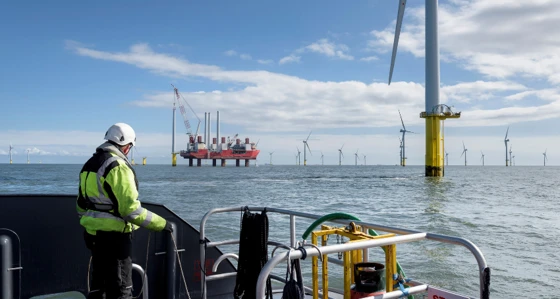
Operationalising a carbon regulator: international considerations for the UK
3 min read 16 October 2024
Reliable emissions data is crucial for a net zero economy. National carbon accounting policies help standardise and encourage accurate emissions data disclosure. However, without international coordination, diverging standards could complicate the regulatory landscape.
This report, commissioned by Energy Systems Catapult, reviews national policies from key trading partners and international initiatives to coordinate carbon accounting. It then outlines considerations for a UK Carbon Regulator. It highlights the need for harmonised methodologies, digital tools for data exchange, and consistent governance structures. The report also identifies opportunities for the Carbon Regulator to lead international alignment in carbon accounting.
"It’s critical for the UK to play a lead role in harmonising and improving carbon reporting standards that drive the right behaviours and recognise good performance, without over-burdening British businesses or hamstringing their efforts to deliver a just transition and compete globally. We believe that an internationally engaged carbon regulator, with the right mandate and resources, is key to achieving that goal."
Hugh Greene, Expert in Energy and Resources
Recommendations for International Engagement
There are opportunities for the UK to strengthen its international engagement to ensure a Carbon Regulator can provide assurance for the credibility of UK industry-reported data while mitigating the risks for reporting entities and ensure ongoing competitiveness of UK exports globally. We have set out these recommendations for engagement below.
- The design and development of national policies requires international engagement to promote harmonisation of standards and avoid additional hurdles for reporting entities.
- Enhanced coverage of sector-specific carbon accounting resources across the international landscape is required to address diverse emissions reporting needs, promote accurate data collection, and enable effective sustainability measures for industry.
- Improved exchange of interoperable emissions data acrosss global industrial value chains requires multi-stakeholder promotion of open source digital platforms and/or digital infrastructure based on standardised data model for storing and sharing GHG emissions data.
- Improved coordination to promote standardisation of accreditation requirements for verification bodies to the international community and provide assurance of credibility of UK verified industry emissions data.
- UK green claims policies, such as the Green Claims Code, should ensure the on-going competitiveness of UK exports by considering the criteria outlined in international low carbon product standards and claims.
To effectively implement the proposed recommendations, a Carbon Regulator would require a mandate that allows for ongoing international engagement, which is currently lacking across existing carbon accounting regulatory frameworks. Allocating resources for international engagement within the scope of a national regulator would present challenges that require further investigation. Other areas of Government, such as the Department for Business and Trade need to support a Carbon Regulator in engaging in the international landscape, to align with Government priorities on international trade and low carbon economic activities.
Our Experts



Related Insights

Three ways in which increased volatility and flexibility are reshaping Spain’s energy market
Spain's energy market faces profound change due to curtailment, negative prices, and a recent blackout, discussed at our roundtable event.
Read more
Turbocharging the benefits of Great Britain's emerging home energy efficiency sector
Improving the energy efficiency of residential housing stock to an Energy Performance Certificate (EPC) rating of C or above is not just an environmental necessity but also a powerful economic strategy that can deliver multifaceted benefits for society.
Read more
Trump trade tariffs: Impact on the UK EV uptake
The global automotive industry is at a critical juncture, shaped by intersecting forces of electrification, geopolitical trade tensions, and national decarbonisation policy.
Read more
Create an “offshore energy mission control”, new report to argue
The UK needs to create an offshore energy “mission control” that has the power to cut through and connect different stakeholders, from government bodies, to oil and gas operators, renewables developers and financial institutions, argues a new report commissioned by Offshore Energies UK (OEUK) and created by management consultancy Baringa.
Read moreIs digital and AI delivering what your business needs?
Digital and AI can solve your toughest challenges and elevate your business performance. But success isn’t always straightforward. Where can you unlock opportunity? And what does it take to set the foundation for lasting success?